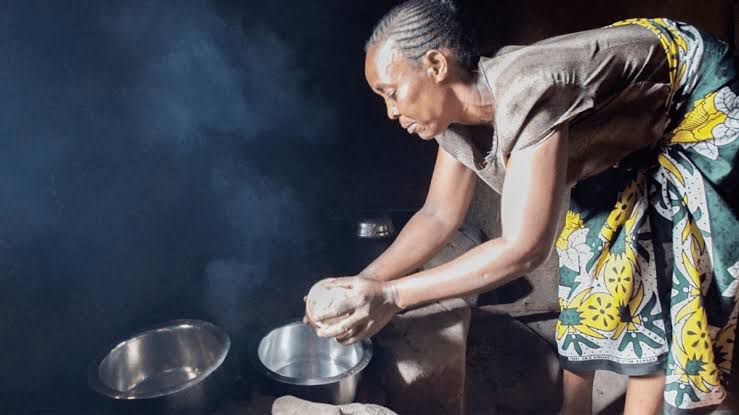Nigeria – Experts Warn Of Serious Risks From Traditional Cooking Methods In Nigeria

By Onoja Baba, Abuja, Nigeria
Leading medical experts in Nigeria have raised an alarm over the serious health risks associated with traditional cooking methods, saying just one in ten Nigerian households uses clean energy sources.
The experts, Professor Tanimola Akande from the University of Ilorin Teaching Hospital, Professor Best Ordinioha from the University of Port Harcourt, and Dr. Solomon Olorunfemi from the Federal Medical Centre, Abeokuta, emphasized the urgent need for a shift towards cleaner cooking technologies to mitigate these risks.
The physicians pointed out that the reliance on firewood and other polluting fuels such as kerosene and charcoal, is a significant factor in the rise of respiratory and cardiovascular diseases, including lung cancer.
Professor Akande stressed that these energy sources release harmful pollutants, which can cause severe health issues. “Prolonged exposure to these pollutants can lead to lung cancer, eye irritation, and other health problems,” he noted.
Professor Ordinioha further elaborated on the health hazards, stating that cooking with firewood is equivalent to smoking a pack of cigarettes per hour. He noted that children are particularly vulnerable, with a higher risk of developing pneumonia and asthma due to their increased exposure to indoor air pollutants.
Dr. Olorunfemi added that women who use non-clean energy sources are significantly more likely to suffer from chronic obstructive pulmonary disease. He stressed the benefits of clean energy cooking methods, which include reduced exposure to harmful pollutants and improved family health.
The experts called for a comprehensive public awareness campaign to educate the public on the dangers of traditional cooking methods and the benefits of clean energy alternatives. They also urged the government to implement policies that make clean energy cooking accessible and affordable, such as subsidizing the cost of gas, electricity, and solar cookers.
“The government must show strong political will to make clean energy cooking accessible to all Nigerians,” said Professor Akande. “Public awareness campaigns can help educate people about the risks associated with non-clean energy sources.”
In addition to the health benefits, adopting clean energy cooking methods can help reduce deforestation and improve environmental sustainability. The experts suggested alternatives such as smokeless stoves using coal, charcoal, or sawdust, which can reduce cooking time and air pollution risks.
Professor Ordinioha emphasized the need for a coordinated effort in addressing the health risks associated with traditional cooking methods. “Healthcare professionals, policymakers, and community leaders must work together to promote a transition to cleaner, healthier alternatives,” he said.
Minister of Environment, Balarabe Lawal, recently highlighted the alarming statistic that only one in ten households in Nigeria uses clean energy sources for cooking. He lamented that traditional cooking methods are not only hazardous to health but also contribute to deforestation and climate change, disproportionately affecting women and children who are more exposed to indoor air pollution.
categories
recent posts





